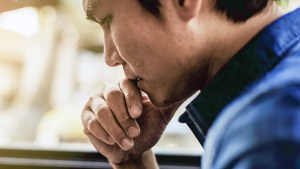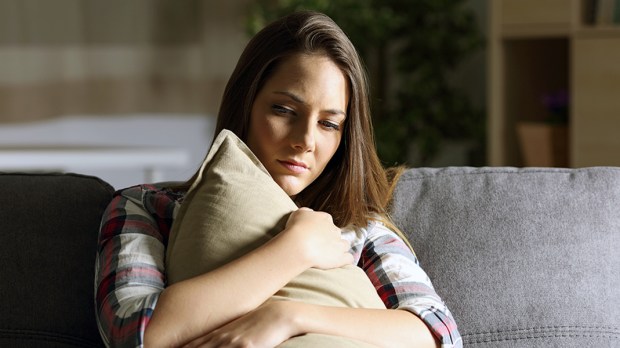Depression can be described as feelings of sadness, melancholy, unhappiness, or dejection. Experiencing these moods for a few short periods or in specific circumstances is absolutely normal; however, when we speak about clinical depression, we are referring to a mood disorder in which feelings of sadness, loss, anger, or frustration interfere with daily life during periods of weeks or months.
Depression can appear at any age, affecting older adults as well as young adults and adolescents. During each stage of life, it has different symptoms; children, for example, will experience lower performance at school.
Symptoms of depression include:
- Irritability or low mood the majority of the time
- Insomnia or excessive sleepiness
- A significant change in appetite, often with weight loss or gain
- Tiredness and lethargy
- Feelings of uselessness, self-hate, and guilt
- Difficulty concentrating
- Unusually slow or rapid movements
- Inactivity and retreating from habitual activities
- Feelings of despair and abandonment
- Repetitive thoughts of death or suicide
- Loss of pleasure and interest in activities that usually bring happiness
- Disinterest in intimacy and sex life with one’s spouse
The principal kinds of depression include:
Major depression: When the feelings of sadness, loss, anger, or frustration interfere with daily life for weeks or even longer periods of time.
Persistent depressive disorder: A state of depression lasting for two years or longer. During this period of time, the depressed person may have bouts of major depression, as well as periods during which the symptoms are less pronounced.

Read more:
How the language we use contributes to depression and anxiety
Other common forms of depression include:
Postpartum depression: Many women feel somewhat depressed after giving birth, but true postpartum depression is more intense and includes the symptoms of major depression.
Premenstrual Dysphoric Disorder (PMDD): Depressive symptoms which occur a week before menstruation and then disappear afterwards.
Seasonal Affective Disorder (SAD): This occurs most frequently during the seasons of autumn and winter, and disappears during the spring and summer, probably due to the lack of sunlight.
Major Depression with Psychotic Features: When a person suffers from depression accompanied by a lack of contact with reality (psychosis).
The best remedy, when there are no underlying biological problems, is prevention.
One of the best antidotes for depression is action; when we keep up a certain level of activity, we feel useful and we acquire a certain sensation of control over our life. For this reason, it is of vital importance for all of us, regardless of our life circumstances, to reserve a certain space each day for doing things we enjoy, that help us to disconnect from our automatic day-to-day rhythm and spend some peaceful time with ourselves.
One problem that depressed people tend to experience is that they have lost the capacity for enjoyment; the things that they used to be passionate about no longer matter to them at all. As a consequence, when you ask them to name some activities that they enjoy, they don’t know what to say. Healthy balance in life is a good foundation for prevention.
Some advice for what to do so that moments of sadness don’t tend towards depression:
- Have hobbies, and engage in them as often as you can.
- Set goals for yourself and fight to achieve them: it will make you feel alive.
- No matter what happens, don’t forget to set some time aside for yourself and for you to do what you enjoy.
- Don’t allow your mood to determine your level of activity.
To conclude, it’s important to distinguish between clinical (pathological) depression and assorted related disorders, and normal moments of particular discouragement or superficial depression. When dealing with serious situations of dysfunction, the best solution is to go to a mental health professional for help as soon as possible. Underlying medical conditions can create terrible symptoms of depression, and — like any other disease — they can only be properly treated by a doctor: in this case, a psychiatrist and/or psychotherapist.
However, depression can also be favored or impeded by circumstances in our lives, so there are preventative steps we can take to help keep a healthy balance in our emotions and activities. Our life is in our hands because we have received the gift of freedom. We have the responsibility of living in the most positive way possible, always pursuing our goals and ideals, and seeking out the help we need to do so.

Read more:
J.R.R. Tolkien’s epic cure for frustration, depression, and doubt

